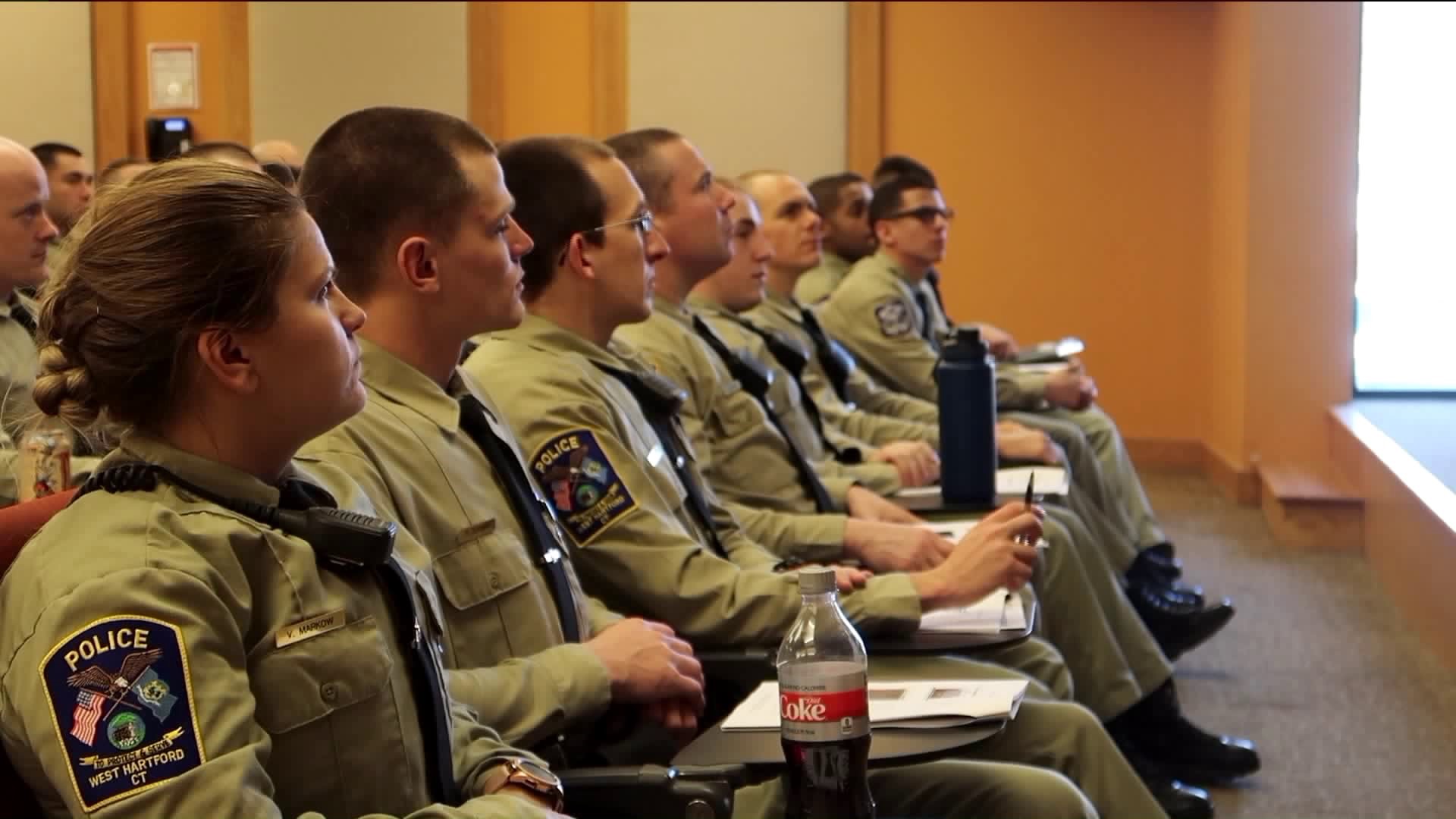Just about any controversial incident related to police use of force can be subjected to second guessing.
But there is no doubt the use of de-escalation techniques can go a long way to preventing many police use of force incidents. Sometimes a cop’s job gets physical. Police must learn to physically defend themselves, use force, sometimes deadly force, when encountering suspects. And cops have always been trained in specialized use of force.
Now Waterbury Police are training their officers, and brand-new police recruits, in de-escalation techniques aimed at preventing violent police encounters before they happen.
Sometimes, it’s all in the approach.
“It’s a cultural issue right now. It’s a cultural issue and we do need training. We need training and basic communication. Basic communication and de-escalation. All right because it is a skill set that is required.” said Kevin Dillon, a retired Lieutenant of the Wethersfield Police Department. He’s also the instructor of the specialized de-escalation training.
Dillon said officers should not be yelling at a traffic stop.
“First of all, there is no reason why you should be that agitated. If they are speeding, why are you getting physically upset that they’re speeding? Now maybe they put somebody in danger and it’s something extreme. 'Do you know what you just did,' but still, you need to maintain homeostasis. Absolutely, they need to be trained in that. What we face in law-enforcement most people don’t face, people yelling and screaming at them. And of course, were supposed to have thick skin.”
But, like anyone else, a cop can have a bad day. Dillon said, “Now there could be a lot of reasons police officers like anyone else they might be going through a significant amount of stress, at home, they might be going through a divorce, they might have a sick child, they might have something that their logic and reasoning and tempers flare up. And those are the ones we want to keep an eye on, almost for like early intervention, so that we can make sure that it doesn’t field out to the public.”
Police confrontations gone bad create tension in communities and cost cities, states and taxpayers millions of dollars. Dillon and the Waterbury police believe these incidents can be avoided, just learning to talk to people.
“There was a case, and it turned out to be the Sandra Bland case in Texas." Dillon said, "Now that was a perfect incident of the officer letting the emotions, and she was not overly that rude. It was sad, 'I’m so sorry you feel that way, but the only reason I really pulled you over is because of this,' No need to get upset about it. So that case, that one incident changed state law in Texas. All right, when all the officer had to do, to understand, 'We seem to be getting hot here, give me one second I’ll be right with you,' how to disengage when possible, sometimes you can’t disengage, but when possible on a motor vehicle stop, you gotta know.
This is an issue that can affect any of us. So basic communication skills, sometimes lost in military style police academies, are being taught to cops in Connecticut, with the goal of keeping cops calm with things get volatile.

